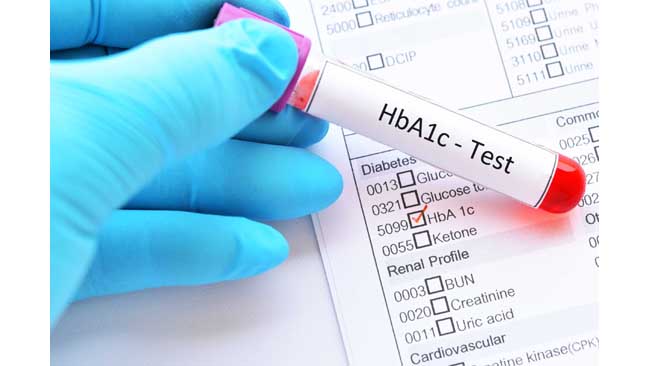
High HbA1C level in Jaipur
Jaipur, 11th May, 2020:
The latest findings of India Diabetes Care
Index (IDCI®) suggest that glycosylated hemoglobin or HbA1c level increased
from 8.20% to 8.50%during January
to March 2020 as compared to the previous quarter in Jaipur. The rise in HbA1C level comes at a time when medical studies
are pointing towards an increased risk for severe complications arising
from COVID-19 in people living with diabetes. The India Diabetes Care Index, a
part of the 'Impact India: 1000-Day Challenge' programme by Novo Nordisk
Education Foundation studies the blood glucose levels across cities through
various parameters.
The HbA1c test indicates the average blood
glucose level over a period of three months and is considered as one of the
best recommended indicators of long-term blood glucose control. People who were part of the assessment in
Jaipur had an average age of 56 years, out of which 61% were male and 39% were
female. Furthermore, the average postprandial glucose level was 257 mg/dl in the quarter and the average fasting glucose level was 171
mg/dl.
People
living with diabetes are more likely to experience severe symptoms and
complications if they get infected with COVID-19 and
this may even worsen if their diabetes is not managed well. Also, in the long
run, it should be noted that 1% reduction in HbA1c reduces the risk of
diabetes-related complications including the risk of heart failure by 16% and
the risk of heart attack by 14%. Older adults and people with
pre-existing medical conditions like hypertension, heart disease, pulmonary
disorders and obesity related conditions are also at a higher risk of
experiencing serious complications due to COVID-19.
Speaking onthe high HbA1C level in the
city and challenges faced by the patients during the lockdown, Dr. Sailesh Lodha, HOD & Sr. Consultant-Diabetes and
Endocrinology, Eternal Hospital, said, “People living
with diabetes have to be more careful about their health and well-being in the current
lockdown due to COVID-19. The risk of developing severe complications is higher
in people with diabetes and COVID-19 can lead to more fatalities in people with
diabetes. It is recommended that people with diabetes should follow a strict
regimen so that their blood glucose levels are in the required range. A part
from their medications, people with diabetes should also practice indoor
physical exercises to manage diabetes effectively.
Currently, more
than 77 million people in India are living with diabetes. To provide them with
optimal care and help them in managing their condition better during the
lockdown, the Government of India has stated that all known/ diagnosed people with diabetes will receive regular supply of
medicines for up to three months through ASHAs (Accredited Social Health
Activists) or SHCs (Sub Health Centres) on prescription.
Talking about the IMPACT India programme,Dr. Anil Shinde, Trustee, Novo Nordisk Education Foundation said, “Through
the India Diabetes Care index, we aim to raise awareness on status of diabetes
care in India. The latest findings suggest that the status of diabetes
management should be paid close attention to because if diabetes is
well-managed, the risk of serious illness from COVID-19 can be reduced to the same
as that in general population. People with diabetes should also take strict
preventive measures so that they can minimize the risk from COVID-19 and are
safe in the lockdown period.”
People with diabetes should have an adequate stock of medications
and supplies for monitoring blood glucose at home. They should store enough
stock of simple carbohydrates like honey, jam and candies. They should also
store Glucagon and ketone strips, in case of poor glycaemic control (low or
high blood glucose levels). People with diabetes should also watch for
emergency warning signs like difficulty in breathing or shortness of breath,
persistent pain or pressure in the chest, confusion or inability to arouse,
bluish lips or face. In case they develop or suspect to have COVID-19 symptoms,
people with diabetes are advised to get medical attention immediately by
calling the hospital or personal physician and explaining their condition.
The 'Impact India: 1000-Day Challenge' programme was launched in
2018 to address the issue of sub optimally controlled diabetes in India. The
ambition of the programme is to reduce the national average of HbA1c by 1%,
which can help reduce the risk of diabetes-related complications significantly
in India. Based on big data analytics,
iDCI® has been providing a real-time view of the average HbA1c in
India across select cities. Under the Impact India programme, digital platforms
are being leveraged to partner with healthcare practitioners (doctors and
paramedics) to evolve and implement an approach to diabetes care appropriate
for India. iDCI® is a dynamic tool that not only tracks the status
of diabetes care but also helps to increase awareness, motivate and sensitize
the healthcare professionals (HCPs) and society.The IMPACT India programme will continue its three-pronged approach through
interactions with healthcare practitioners (HCPs), societal/patient engagement
and monitoring.